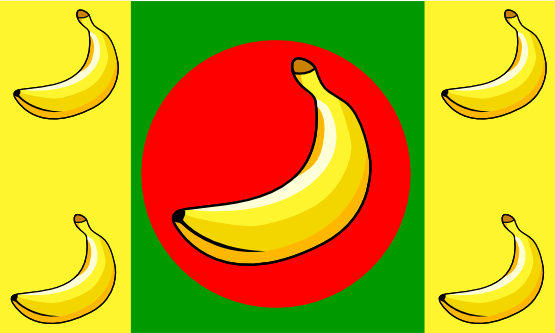And here we go.
In three days, my partner (now wife!) Esther and I are leaving the Bay to live and travel in Central America for the fall. The trip is coming off the heels of our wedding (which was crazy beautiful, I am truly blessed), but it is not a honeymoon, at least not in the traditional vacation sense.
My main goal for the next three months is just to live — in particular, to live outside the heart of the corporate empire. I want to see what life & politics & culture is like outside the borders of America, Inc. for a little while. Along the way, I’m planning on get my Spanish back up to (near) fluency, and yes, enjoying some time with the wifey.
We are going to spend the majority of our time in Guatemala, living in Quetzeltenango, better known as Xela. We are starting our time at the Proyecto Lingüistico Quetzalteco (PLQ), a Spanish-language school run collectively by local teachers and human rights activists. Several friends recommended the school to us, both for its language instruction and its social justice projects that we will be able to plug into.
After getting our bearings (and local slang) down in Xela, the idea is to travel through Guatemala, and then on to Honduras, Nicaragua, Costa Rica, and Panama. We have friends and comrades in each country that have offered to host us, which is beautiful — the best way to learn a place is from the folks who know it best.
After Xela, our itinerary is fairly loose and as of now we don’t have a return ticket back to the States — if you know me, you know this is not the usual, extra-organized Healey style. But again, that’s the point. Live at a different pace. Travel in a different way. The goal is not to hit as many countries as possible. We might not make it all the way to the Panama Canal. Great. This is about depth, not breadth. Life, not tourism. I’m sure it won’t work out exactly according to plan, but hey, plans are overrated anyway.
The politics should be interesting, that’s for sure. These are the countries that together coined the term “banana republic” after all. Meaning they are (or have been), according to Wikipedia’s definition, “politically unstable countries dependent upon limited primary productions and ruled by a small, wealthy, corrupt politico-economic oligarchy.” Oooh, sounds delicious. After all, the label arose from the primary stolen commodity – I mean, export – of Central America in the early 1900s: the almighty banana.
Indeed, the CIA-orchestrated coup of Guatemala’s democratic president in 1954 was to protect the interests of the multinational banana corporation, the United Fruit Company. The coup set off a 36-year civil war that had the army take power and kill almost 200,000 people, mostly indigenous Maya villagers. Like its Central American neighbors, Guatemala did not become a banana republic on its own — the U.S. made it one, first with assault rifles and later with the IMF.
These days, Guatemala is nominally at peace, although the underlying issues of land reform, economic inequality, and political disempowerment remain. And now you have massive violence and street gangs as part of the drug trade that has spilled over from the U.S. and Mexico.
Guatemala’s immediate prospects look dim. Last week, the country had its first round of voting for the presidential elections. The leading candidate that emerged is Otto Pérez Molina, a former general during the civil war and graduate of the infamous School of the Americas, the U.S. training ground for many future Latin American war criminals. Reading the newspapers in advance of my trip, I wondered how the Guatemalan people expect this elite military man to solve the social problems caused by the very same military elite?
Wait, that sounds familiar. Oh yes, that sounds like damn near every election here in the good old USA.
From the Koch Brothers and their puppet Governor Scott Walker in Wisconsin, to the Supreme Court’s Citizens United ruling that corporate political donations are free speech and thus free from regulation, to the recent Republican Party presidential debate that CNN cosponsored with the Tea Party (can you imagine them sponsoring with a liberal group, even a mainstream one like MoveOn.org), we don’t have to look to Central America to see what a banana republic looks like. All we have to do is look in the mirror.
And this, at the end of the day, is the purpose of my trip.
American culture and politics is so limited because we are unable (or refuse) to see beyond our reinforced exceptionalism. Even many of us on the Left, who call for a world without borders, know little of what is happening beyond those all-too-real actual borders. For me as an artist, and as an activist, I need to expand my idea of what’s possible by seeing another social reality, and another collective imagination.
There is a lot of pain in Central America, but there is also a lot of promise. As with any of us. I am going to learn from both, and I’ll do my best to update you along the way.
Be cool, America. I’ll see you soon. Stay off those bananas, if you can.

